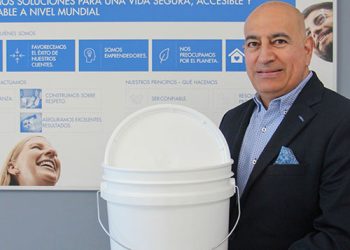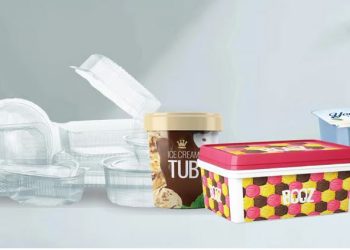With the government all set to ban single-use plastics on the occasion of the 150th birth anniversary of Mahatma Gandhi on October 2, plastic manufacturers are looking to produce alternative materials at an affordable price.
Since glass or any other material may work out to be costly, the industry is looking to produce packaging materials made of polymer with high viscosity to make them recyclable. For milk packaging, the industry is mulling to manufacture pouches and bags made from polyester filament yarn (PFY) which could be used 45-50 times and are also recyclable. Consumers would be able to send these pouches back to milk suppliers, resulting in savings in the cost of packaging.
“Switching to alternative packaging materials, such as glass and tetra pack, would add to the cost of packaging, handling, and transportation (as glass is heavier than plastic). Neither is it user-friendly nor cost-effective. Thus, until the industry comes out with an alternative solution of packaging, the ban should be pushed by at least three months. Also, the ban should be implemented in a phased manner,” said a senior industry official.
Meanwhile, the industry is awaiting a definition for “single-use” plastic, even as the proposed date of the ban is fast approaching. Currently, the single-use plastic is defined as the one made of polyvinyl chloride (PVC) and polyethylene like carry bags, which are not recyclable and biodegradable.
The government had fixed a thickness criterion of 50 microns when the use of plastic carry bags was banned a couple of years ago.
“Bags or pouches made of PFY should be encouraged with an exemption from the goods and services tax (GST),” said the official.
Meanwhile, R S Sodhi, managing director of Gujarat Co-operative Milk Marketing Federation (GCMMF), India’s largest milk-producing co-operative that produces Amul brand dairy products, said: “Milk packaging does not fall in the category of ‘single-use’ plastic as milk pouches are recyclable. Our milk pouches are 100 per cent virgin LDPE (low-density polyethylene) monolayer ones.
By recycling milk pouches, the industry manufactures pipes and tarpaulin. You will never see even a single milk pouch is thrown into the dustbin. In fact, we have made an arrangement to recycle 100 per cent plastic pouches.”
But, the industry has urged the government to give at least for three months for switching to alternative means of packaging, especially essential commodities. Some alternatives are suggested as tetra packs and hotfill polyethylene terephthalate (PET) bottles with removable lids.
In the United States, hotfill milk and juices are packed in 100 per cent PET bottles, which can be recycled to make polyester fibre and other items, including bottles.
“We have to adopt packaging materials being used in the US and other developed countries to avoid single-use plastics. For milk packaging in PET bottles, higher viscosity can be fixed for multi-recycling capacity. This is also least expensive material after the ban on single-use plastics,” said an industry expert.
Unfortunately, another alternative i.e. tetra pack is not environment-friendly. For manufacturing tetra pack bottles, trees need to be cut.
“Thousands of small and medium enterprise (SME) plants currently manufacturing ‘single-use’ plastics will be shut down and would render thousands of people jobless. While India’s plastic exports would not be impacted, domestic industry would certainly be hit temporarily,” said Sribash Dasmohapatra, executive director, Plastic Export Promotion Council (Plexconcil).
The industry is mulling to manufacture pouches and bags made from polyester filament yarn which could be used 45-50 times and are also recyclable
Consumers would be able to send these pouches back to milk suppliers, resulting in savings in packaging cost
The government had fixed a thickness criterion of 50 microns when plastic carry bags were banned a couple of years ago
In the US, hotfill milk and juices are packed in 100 per cent PET bottles, which can be recycled to make polyester fibre and other items
Source : Business Standard
Packaging 360 is a comprehensive knowledge sharing ecosystem for the Indian packaging industry. Our services include an online content platform to deliver news, insights and case studies; organising conferences seminars and customised training; Providing Bespoke Project Consulting, Market Research and Intelligence.







